Back to the Main Page
Your Physical Health
Common Illnesses/Symptoms
Healthy Eating
Boost your mood with healthy food.
We should all try and follow a healthy eating pattern the majority of the time. Use the food pyramid and ensure to get your 5 a day of fruit and vegetables. Try to avoid sugary foods lead to a sharp drop in blood sugars which contributes to energy and mood slumps. Caffeine causes increased heart rate and interferes with sleep; Did you know fizzy drinks can contain caffeine?
It is easy to opt out of healthy eating during busy college life but eating a healthy balanced diet can;
- Make you feel good

- Help you look your best
- Help you maintain a healthy weight
- Reduce your risk of contracting cancer,
- diabetes, osteoporosis and cardiovascular disease.
See Safefood for further information.
Check here to find how to eat healthy on a student budget.
Physical Activity
Adults (18-64yrs) need at least 30 minutes a day of moderate activity (increase breathing and heart rate, being able to talk but not sing) for 5 days of the week or 150 minutes a week.
If you are currently inactive,10 minute bouts are a good way to start working up to 30 minutes. For additional health benefits increase your activity to 60 minutes per day, 5 days per week.
Benefits of physical activity
Being physically active on a daily basis has numerous benefits that will help you lead a healthy life. The following are a list of benefits of regular physical activity;
- Reduce your risk of developing 35 different chronic diseases such as diabetes, heart disease, some cancers, cardiovascular disease, osteoporosis etc.
- Boost your self-esteem
- Improves appearance
- Helps to maintain a healthy weight
- Builds muscle which burns calories
- Improves your quality of sleep resulting in you being better rested and feeling great for the day
- Improves your quality of life
- Live a longer life
- Helps you manage stress better and helps you become more resilient to stress
How do I get active at college?
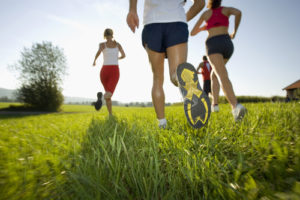
Walk, jog, run, cycle, skate to college and home every day: 10 minute bouts of exercise is beneficial to your health and works towards your recommended 30 mins. By walking to and from college and maybe home and back for lunch you could be meeting the recommended guidelines. ATU Sligo have many sports teams, clubs and societies so you’re sure to find something you love doing from dance, soccer, gaelic, karate, athletics, basketball. For info on all the clubs and societies available have a look at ITSSU Clubs & Societies .
ATU Sligo Gym
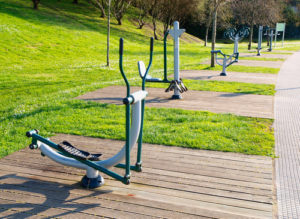
The gym at ATU Sligo is a state of the art facility which incorporates 32 pieces of cardiovascular and resistance equipment plus free weights. With new cardio equipment recently added along with a watt bike, the Knocknarea arena is one of the best facilities around. As a member of the Fitness Centre you will receive free fitness consultations and personalised exercise programmes from a member of our qualified fitness team. The cost is €90 per year for registered students.
Outdoor Facilities
There are many scenic routes to be active that surround 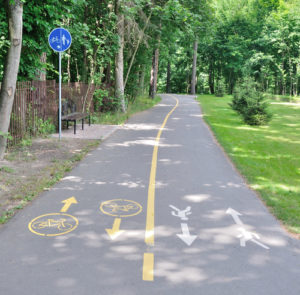
the college and in Sligo in general;
- Walking routes around the sports pitches located on the front of the campus
- There is also an outdoor gym, adjacent to the Knocknarena
- Clayton Hotel (5 mins walk away from the college) has a swimming pool on site
- Sligo Tennis Club (25-30 mins walk away from the college)
- Only 5 km away is Hazelwood – a common walking/running route for our students
Check out Get Ireland Active which provides a broad range of activities in Sligo based on your preferences.
Sleep
Sleep is so important to our health and how we feel. One night of bad sleep can diminish our mood and well-being. Loss of sleep can make the easiest of tasks very difficult.
Sleep gives us the opportunity to restore our energy levels, improve memory function, and help to heal the body.
Lack of sleep impacts on our concentration levels and results in everyday activities becoming challenging. Over time, this impacts on our mental health and the ability to socialise, which in turn can make us feel isolated, lonely and reduce your mood (Mental Health Ireland, 2016).
Tips to get a Good Night’s Sleep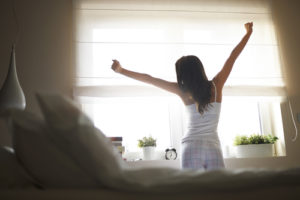
- Have a Routine – Try to go to bed and wake up at the same time every day.
- Exercise – Being active during the day can induce tiredness.
- Avoid napping during the day – This reduces your ability to sleep at night.
- Relax before bed -Avoid technology such a phones and T.V’s, have a warm bath or listen to some relaxing music.
- Minimise Anxiety – Try not to tackle anything that can cause anxiety before bed time, write down any worries you have to clear your head before sleeping.
- Avoid eating heavy meals before bed – As your body has to work on breaking it down while you sleep, you do not get as much rest.
- Avoid stimulants before bed – such as tea, coffee, chocolate, fizzy drinks or cigarettes.
Smoking
The above video is courtesy of the HSE’s new QUIT campaign via YouTube.
- 23% of the Irish population smoke with half of all smokers dying from their habit – half of them will be only middle aged.
- 6000 people die annually from smoking related diseases.
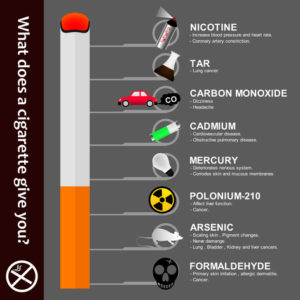
- Smoking causes 30% of all cancers.
- 18% of people are exposed to second hand smoke. Non-smokers who breath in smoke from others cigarettes have a higher risk of developing lung cancer and other types of cancers.
What Makes Smoking So Harmful?
Tobacco contains a mixture of over 4000 different chemicals most of these chemicals damage cells in your body and cause cancer. Once these chemicals pass into the blood stream and disperse throughout your body, they contribute to most smoking–related diseases.
How does smoking harm the body?
- Abdomen – Stomach and duodenal ulcers, Cancer of the stomach, pancreases’ and bowel, Aortic aneurysm.
- Addiction.
- Brain – Strokes.
- Blood – Leukaemia.
- Bronchitis and emphysema.
- Bones – Osteoporosis, Spine and hip fractures.
- Chest – Cancer of the oesophagus.
- Eyes – Blindness, cataracts.
- Female reproduction – Cancer of the cervix, earlier menopause, Infertility and a delay in conception
- Hair – Smell.
- Hands – Poor circulation, Tar stained fingers
- Heart – Heart attacks, harms, block weakens arteries of your heart
- Immune system – Weakened
- Kidney and bladder – Cancer
- Legs & Feet – Increased leg pain and Gangrene. Poor circulation
- Male reproduction – Reduces sperm count, impotence
- Mouth and Throat – Cancer of lips and mouth, throat and larynx, Breath smell
- Nose – Less sense of smell
- Respiration and lungs – Lung cancer, Coughs, Shortness of breath, Colds, Flus Pneumonia and Asthma,
- Skin – Wrinkles, Premature ageing
- Teeth – Discolouration and stains, Plaque, Tooth loss.
How can I reduce my risk of ill health?
Quitting smoking is the most important thing you can do to improve your health and decrease your risk of contracting many types of cancers. After you quit, the your risk of developing these cancers falls and continues to do so as you remain smoke free.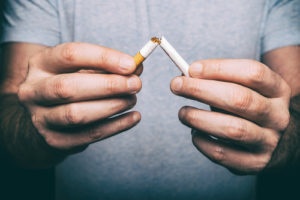
Benefits of Quitting
- Within 20 mins – your blood pressure and heart rate begins to return to normal
- 8 hours – the oxygen levels in your blood returns to normal saturation
- 24 hours – the carbon monoxide that comes from smoking is gone from your body
- 48 hours – your sense of taste and smell is much improved
- 72 hours – breathing becomes easier and energy levels improves
- 12 weeks – circulation improves
- 1 year- risk of heart attack is reduced by 50%, risk of lung cancer also becomes reduced
Top Tips to quit Smoking
- Prepare yourself for quitting & Be positive – The withdrawal symptoms you may experience are healthy signs that your body is beginning to recover from smoking, these all include coughing, irritation, sleep disturbance etc.
- Make a list of reasons for quitting.
- Decide on a date to quit & Stick to it.
- Get the support you deserve – Talk to your GP for help, talk to family and friends who can help.
- Get in contact with the National Smokers Quit line on 1850 201 203. Tracey Flood is the HSE officer based in Sligo hospital. Contact her on 1850 200 687 or email: Tracey.flood@nullhse.ie .
- Change your regular routine – Plan for weak moments. As smoking can be linked to specific times and situations plan ahead and replace your smoking with a new activity
- Let’s get physical – Becoming more active can be a new activity to take up when cravings hit. It will also lead to better health and help manage your weight.
- Save money – Cigarettes are costly so weekly this adds up. Treat yourself regularly or save the money you would have spent. i.e. €10 a day= €300 a month which could get you a holiday
- Watch what you eat – Try to avoid snacking on sugary treats while keeping yourself occupied, stick to fruit and water
- Take each day at a time – Every day without a cigarette is good for your health and also good for your pocket.
Dealing with Cravings
Your craving for nicotine will peak at 3-5 minutes and will pass if you deal with it. This desire will weaken over 4-6 weeks.
Practice using the 4 D’s;
- Distract yourself by focusing on something else.
- Delay until the urge passes- usually up to 3-5 minutes
- Deep breath 20 times.
- Drink a glass of cold water or fruit juice.
We can support you
Book an appointment with the nurse at ATU Sligo Health Services reception desk where she can discuss your options; Don’t forget your student ID card.
Email studenthealthservices@nullitsligo.ie or contact -071 93 05463 or 071 93 05205 for further information.